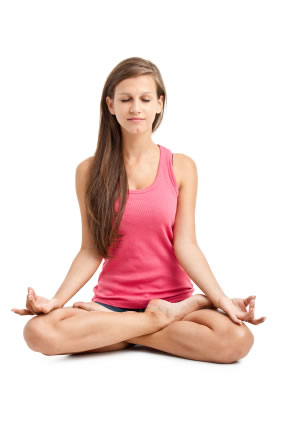
Image: iStockphoto
Pilot Study Shows Improvements in Some Psychosocial Outcomes
Fifty-one 11th- and 12th-grade students registered for physical education (PE) at a Massachusetts high school were randomly assigned to yoga or regular PE classes. (Two-thirds were assigned to yoga.) Based on Kripalu yoga, the classes consisted of physical yoga postures together with breathing exercises, relaxation, and meditation. Students in the comparison group received regular PE classes.
Students completed a battery of psychosocial tests before and after the ten-week yoga program. In addition to tests of mood and tension/anxiety, both groups completed tests assessing the development of self-regulatory skills—such as resilience, control of anger expression, and mindfulness—thought to protect against the development of mental health problems.
Teens taking yoga classes had better scores on several of the psychological tests. Specifically, while students in regular PE classes tended to have increased scores for mood problems and anxiety, those taking yoga classes stayed the same or showed improvement. Negative emotions also worsened in students taking regular PE, while improving in those taking yoga. (There was no difference in a test of positive emotions.)
However, the tests of self-regulatory skills were not significantly different between groups. Although attendance was only moderate, the students rated yoga fairly high—nearly three-fourths said they would like to continue taking yoga classes.
Could Yoga for Teens Help Prevent Mental Health Problems?
Adolescence is an important time for the development of mental health, including healthy coping responses to stress. Several types of school-based stress management and wellness programs have been developed with the goal of encouraging healthy coping strategies and resilience among teens.
One promising approach is yoga, which combines strength and flexibility exercise with relaxation and meditation/mindfulness techniques. Studies have shown benefits of yoga in a wide range of mental and physical health problems, including a growing body of evidence showing positive effects in children and teens.
Although limited by its small size, the study suggests some positive psychological effects of Kripalu yoga for high school students. The results are “generally consistent” with the few previous studies of yoga in school settings. Dr Noggle and coauthors call for larger studies including multiple schools and tracking teens for several years into adulthood. These larger studies will be needed to clarify the psychological and other health benefits of yoga for adolescents—including the possible preventive benefit on development of mental health problems.
